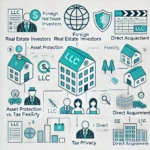Introduction:
Welcome to the brave new world of the digital economy, where bytes replace bricks and national borders dissolve into a tangle of codes and pixels. As we move into an era where virtual and augmented realities merge with our everyday experience, traditional business and taxation structures are being challenged like never before.
Imagine a scenario where your company operates simultaneously in dozens of virtual jurisdictions, each with its own dynamic tax rules, changed in real time by AI algorithms. This is not a distant science fiction scenario, but the imminent future we need to prepare for.
As a pioneer in navigating these turbulent digital waters, with more than two decades unraveling the mysteries of international taxation, I invite you to dive with me into the depths of what I call the “Tax Metaverse”. In this article, we’ll explore the most advanced frontiers of digital business structuring and the tax challenges that await us in a world where the very definition of “place of business” is in constant flux.
This guide is your compass for navigating the digital ocean that stretches out before us, aimed at digital visionaries, virtual reality architects, and tax guardians of the future. Get ready to challenge everything you thought you knew about global business and international taxation.
Part 1: Ready to Roll 🚀 – Basic Strategies and Practical Actions
Part 1, “Ready to Roll”, offers practical actions and immediate advice for entrepreneurs who need quick and effective guidance.

1. The New Paradigm: Beyond Physical Jurisdictions
In the world of the metaverse and advanced digital economies, the traditional concept of a “permanent establishment” is becoming as obsolete as a dial-up modem. We are entering an era where
- Virtual Presence is the New Reality: Companies exist primarily as digital entities, operating simultaneously in multiple virtual “spaces”.
- Multidimensional Transactions: Negotiations take place not just between jurisdictions, but between different layers of digital reality.
- Fluid Corporate Identity: A company’s legal personality can change dynamically based on its activity and location in the digital space.
2. Cryptoeconomies and Sovereign Digital Currencies
The proliferation of cryptocurrencies and the advent of Central Bank Digital Currencies (CBDCs) are redefining the global financial landscape:
- Real-Time Taxation: Imagine a world where taxes are calculated and collected instantly with every digital transaction.
- Algorithmic Tax Jurisdictions: Programmable CBDCs can create “dynamic tax zones” that adjust in real time based on economic indicators.
3. NFTs and the Tokenization of Digital Property
The NFT revolution goes far beyond digital art, fundamentally impacting how we define and transfer value in the digital space:
- Hybrid Digital Assets: Property that exists simultaneously in the physical and digital world, challenging traditional tax categorizations.
- Property Fractionalization: The ability to divide ownership of digital assets into infinitesimal parts creates new challenges for tracking and taxation.
Part 2: Deep Dive 🤿 – Technical Deep-Dive into Advanced Strategies
Part 2, “Deep Dive”, provides in-depth analysis for those who want to dive into the technical and complex aspects of international finance.

4. Quantum Corporate Structures
Imagine corporate entities that exist in a state of fiscal superposition, instantly adapting to the most favorable conditions:
- Multidimensional Corporations: Structures that operate simultaneously under different tax regimes, optimizing in real time.
- Smart Tax Contracts: Self-executing contracts that automatically adjust the corporate structure based on predefined tax parameters.
5. Tax AI and Predictive Compliance
Artificial intelligence will not just be a tool, but an active partner in tax navigation:
- Dynamic Tax Optimization Algorithms: AIs that constantly analyze the global landscape and adjust strategies in microseconds.
- Quantum Audits: Using quantum computing to simulate millions of tax scenarios simultaneously, identifying risks and opportunities invisible to human eyes.
6. Digital Tax Diplomacy
As digital economies become dominant, we will see the emergence of new forms of international negotiation:
- Digital Tax Treaties: Dynamic agreements between nations that adjust in real time based on data flows and virtual economic activity.
- Digital Tax Havens: Special zones in cyberspace offering favorable tax regimes for certain types of digital activity.
7. Ethical and Philosophical Challenges
With great power comes great responsibility. The new digital frontier brings with it profound dilemmas:
- Tax Fairness in the Metaverse: How can we ensure that digital tax optimization does not exacerbate inequalities in the real world?
- Fiscal Sovereignty in a Borderless World: Redefining the role of nation-states in the age of the globalized digital economy.
8. Preparing for the Inevitable
How to navigate this new world? Here are crucial strategies:
- Extreme Structural Flexibility: Develop corporate structures that can adapt quickly to changes in the fiscal metaverse.
- Continuous Education in Emerging Technologies: A deep understanding of blockchain, AI and quantum computing will be as crucial as traditional tax knowledge.
- Interdisciplinary Collaboration: Form teams that combine expertise in tax law, advanced technology and digital philosophy.
- Quantum Scenario Simulations: Use advanced computing to model and prepare for a myriad of possible tax futures.
Conclusion
We are on the brink of an unprecedented tax revolution, where the rules of the game change not just annually, but every microsecond. The “Tax Metaverse” is not just a futuristic concept, but an emerging reality that will demand a complete reinvention of how we think about business, value and taxation.
To thrive in this new world, we will need to be more than accountants or tax lawyers; we will have to become “quantum tax architects”, capable of navigating and shaping the multidimensional complexities of the digital economy.
The future is not for the timid, but for visionaries willing to embrace the creative chaos of the tax metaverse. Are you ready to take the leap?
To continue this fascinating journey and prepare for the future of digital taxation, I invite you to take part in our next immersive virtual reality webinar: “Tax Metaverse 2025: Simulating Tomorrow’s Tax Scenarios”. In this unique experience, you will not only learn about the future of digital taxation, but you will experience it first-hand in our advanced simulation environment.
FAQs
- Q: How can I protect my company against “quantum tax hacks”? A: Implement security protocols based on post-quantum cryptography and maintain a dedicated team of “digital tax guardians” to monitor real-time threats in the metaverse.
- Q: Is there such a thing as “fiscal residency” in the metaverse? A: Fiscal residency in the metaverse is fluid and based on “digital footprints”. Your presence and activity in different virtual spaces will dynamically determine your “digital tax residency”.
- Q: How are tax authorities preparing for this new reality? A: Tax agencies around the world are investing heavily in “fiscal digital twins” – complete virtual replicas of their systems that operate in the metaverse, allowing for real-time supervision and adjustments.
- Q: What will be the role of traditional accountants and tax lawyers in this new world? A: Tax professionals will evolve into “quantum tax orchestrators”, combining traditional expertise with advanced skills in programming, AI and virtual reality design to navigate the complex ecosystem of the tax metaverse.
- Q: How can small businesses compete in this highly technological tax environment? A: “Tax Compliance as a Service” (CFaaS) platforms will emerge, offering democratized access to quantum tax optimization tools, allowing even small businesses to efficiently navigate the tax metaverse.

Member of the IMA (Institute of Management Accountants) – USA
Member of the AICPA (American Institute of CPAs) – USA
Member of AAII (American Association of Individual Investors) – USA
Member of AAA (American Accounting Association) – USA
Member of the FMA (Financial Management Association) – USA
These associations not only attest to Kleyton’s commitment to professional excellence, but also ensure that his knowledge is always at the forefront of international financial and accounting practices.
With a robust academic background, including a Bachelor’s degree in Accounting and MBAs in International Finance and Accounting, as well as in International Business, Kleyton offers a unique and comprehensive perspective on the global business landscape.
Through the Tartarotti Report, Kleyton invites visionary entrepreneurs and executives to connect, explore opportunities for collaboration and, together, successfully navigate the complex world of international corporate finance.







